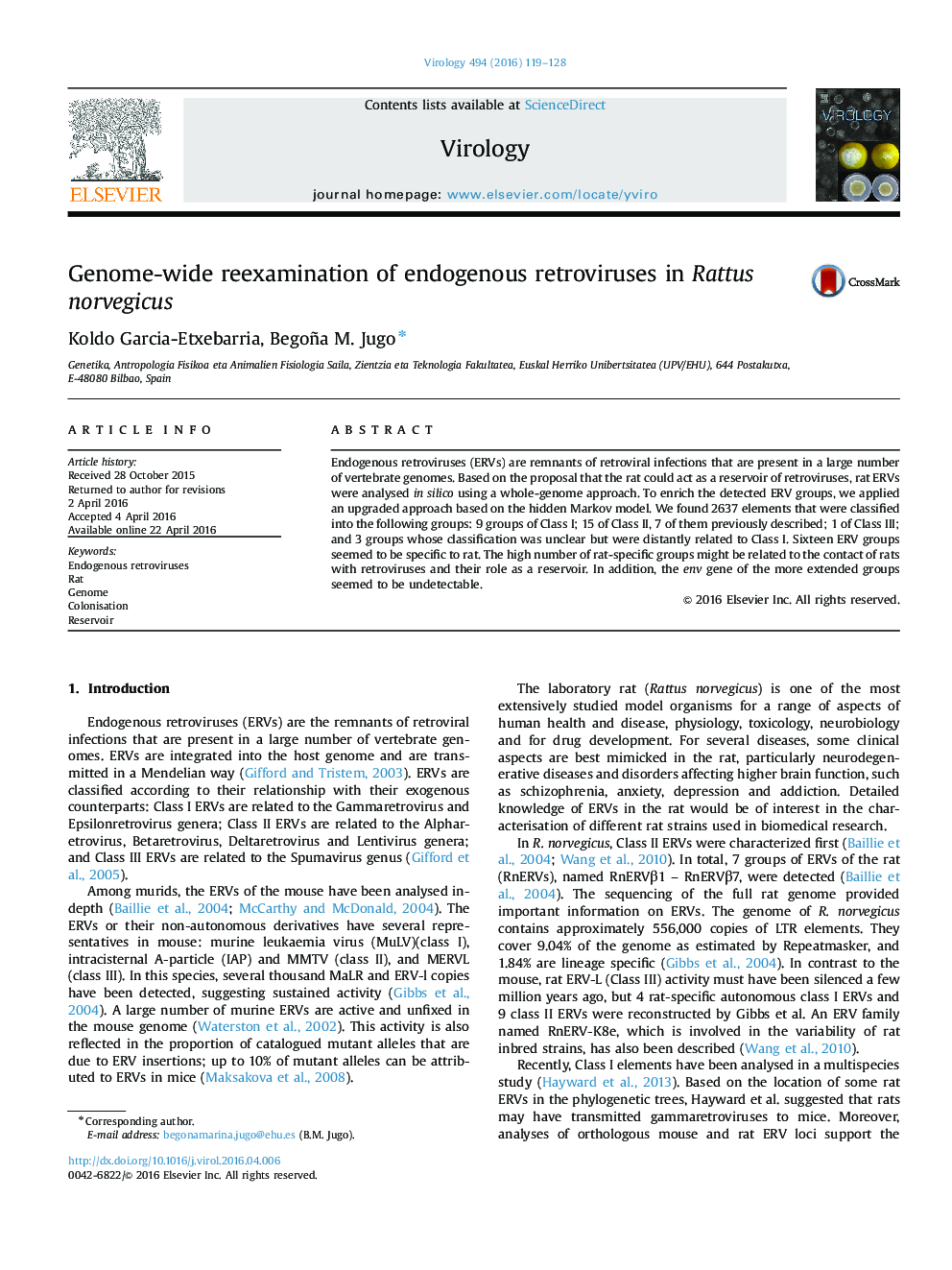| Article ID | Journal | Published Year | Pages | File Type |
|---|---|---|---|---|
| 6138449 | Virology | 2016 | 10 Pages |
Abstract
Endogenous retroviruses (ERVs) are remnants of retroviral infections that are present in a large number of vertebrate genomes. Based on the proposal that the rat could act as a reservoir of retroviruses, rat ERVs were analysed in silico using a whole-genome approach. To enrich the detected ERV groups, we applied an upgraded approach based on the hidden Markov model. We found 2637 elements that were classified into the following groups: 9 groups of Class I; 15 of Class II, 7 of them previously described; 1 of Class III; and 3 groups whose classification was unclear but were distantly related to Class I. Sixteen ERV groups seemed to be specific to rat. The high number of rat-specific groups might be related to the contact of rats with retroviruses and their role as a reservoir. In addition, the env gene of the more extended groups seemed to be undetectable.
Related Topics
Life Sciences
Immunology and Microbiology
Virology
Authors
Koldo Garcia-Etxebarria, Begoña M. Jugo,
